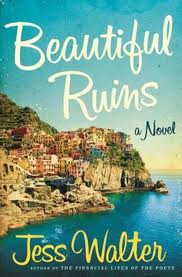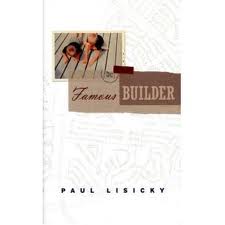With the London 2012 Games having begun on the weekend (with that hilarious parody during the Opening Ceremony of James Bond, starring Daniel Craig and Her Majesty Queen Elizabeth II and her corgis), my timing to read GOLD couldn't have been more perfect. In it two British women cyclists, Kate Argall and Zoe Castle, are training for their places on Great Britain's cycling team for these very games.
Kate and Zoe met when they both made the cut for the national cycling team when they were just nineteen years old. There, one of their teammates, Jack--handsome, swaggering Jack--falls for each of them, one a passion in passing, the other lifelong. Twelve years later, Zoe is the face of Perrier and living a wild single life, while Jack and Kate, now married, are focused on their daughter Sophie, who is a tomboyish eight, obsessed with Star Wars, and has leukaemia--a reality the little family has been dealing with for a couple of years.
All three adults are in the top condition of their sporting lives, each hoping for a seat on the GB cycling team for London 2012.
There are conflicts aplenty and secrets kept then shared that risk everything. And, it's clear that Cleave understands what it must feel like to train so obsessively, through ongoing physical and emotional pain. He knows, as he shows through Tom, the aging coach and former Olympian, that our bodies are bound to betray us: through illness, through injury, over time.
Cleave is a stunning prose stylist. I found myself turning down the corners of pages to return to contemplate the beauty of the thought and the weight of the sentence. Consider this passage where Kate is watching a televised race where she should have been competing: "Her leg muscles twitched and her awareness sharpened, dilating every second. Kate hated the way her body still readied itself to race like this, hopelessly, the way a widow's exhausted heart must still leap at a photo of her dead lover." Or this one where Zoe contemplates a life other than the one she's living: "Just beyond your sight, life might be moving in ways that were moments away from being revealed to you. It was a mistake to take disappointments at face value. You were only a tap at the door and a dozen fresh-cut blooms away from happy."
And, the denouement is perfect. What a read. What a ride.
I cannot wait to give a copy of GOLD to my friend Helen, a former GB Olympian who competed in '72 & '76 Summer Games in Munich and Montreal as a diver, who is currently a physician at a children's hospital here in Toronto. She will certainly feel as if Cleave's story were written especially for her.
GOLD is not only model Sports Lit, but also a story that will feed your heart and mind. Treat yourself to a copy. Soon.
Follow @chriscleave on Twitter, or drop by his website to see if he's doing an event near you http://www.chriscleave.com/.






